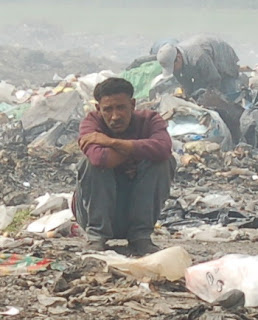 We all remember the beginnings of this festive week. One of the things that binds us together as a people is the experience of having been dressed up (while children, in most cases) as pilgrim women and men, Indians, or turkeys (those of us who were being prepared at an early time in life for social sacrificial roles).
We all remember the beginnings of this festive week. One of the things that binds us together as a people is the experience of having been dressed up (while children, in most cases) as pilgrim women and men, Indians, or turkeys (those of us who were being prepared at an early time in life for social sacrificial roles).
We remember but perhaps we don't realize that the pilgrims were amongst the first foreigners to come to America (I don't know much Biblical Hebrew, but I believe that aliens are called maguwr, as in Genesis 17, 8, wherein Abraham is promised by God legal permanent residence in the Promised Land). The pilgrims were surely undocumented. Although the native Americans did not have as complicated an immigration law as we do, they did know who was whom and which tribe had rights to settle in which coast and valley. Unprotected aliens as well, these first Other Than Mexicans. They proved as resilient as most desperate refugees tend to be: they survived that first hard year and then settled in amongst the native peoples.
So to speak.
Cristina is a pilgrim who came to these shores five years ago. Two of her children are native born and so are citizens. She and her husband are undocumented, and according to radiospeak, "potential terrorists." In reality, they are simple people who are doing what they can to get through one crisis after another. They live in Brownsville, Texas, and are grateful not to have to be braving the New England winter that nearly wiped out the first pilgrims.
They had turkey this Thanksgiving, but would have happily passed on the meal in exchange for some peace of mind.
Cristina told me that she is afraid to go to the store, as the "Border Patrol are everywhere and they are arresting everyone. I don't think that I could live separated from my children."
The question on the tip of one's tongue, always, is "so why not go back to your home country?"
I wonder what a pilgrim would have answered to that question.
I confess it is hard to imagine them getting back on their boats and going back to England. I wonder what would have happened if our "Father in Faith" Abraham had returned to where he came from.
Perhaps there wouldn't have been a Jewish people, and therefore no Christian people, and certainly, then, no pilgrims. Or thanksgiving.
Perhaps we would all be reading and writing in Cherokee.
And practicing that most ancient American virtue: hospitality.










